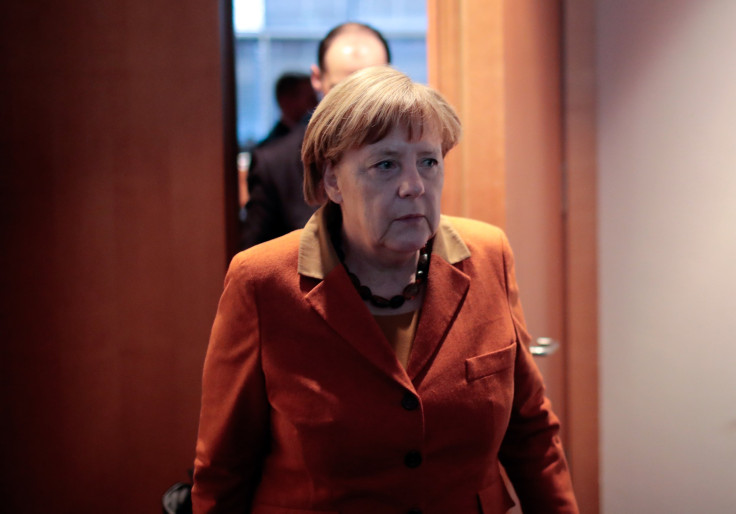Merkel Out? Germany Election Polls Show Refugee Crisis Could Cost Angela Merkel Her Job

For the past 12 years, Chancellor Angela Merkel has been the most powerful person in Germany, and one of the most powerful people in the world. But come September, that might change.
A poll released Friday found Merkel’s Social Democrat opponent, Martin Schulz, took the lead among potential Germany voters. Forty-nine percent of Germans polled preferred Schulz based on a direct leadership vote, according to the poll, which was carried out by Forschungsgruppe Wahlen for broadcaster ZDF. Only 38 percent of those polled chose Merkel — an 11 point difference. This is a remarkable switch compared to the end of January, when the same poll showed Merkel leading 44 percent to Schulz’s 40 percent.
Schulz, the former president of the European Parliament, is further to the left than centrist Merkel, but it’s still closer to the center than the far-left Linke Party. When the poll inquired about parties without candidates, the numbers rolled in a bit differently.
Thirty percent of Germans preferred the Social Democrat Party, up six percentage points since the last poll. Merkel's Union party — a conservative-centrist coalition of the Christian Democrats and its Bavarian sister party, the Christian Social Union — polled at 34 percent, dropping two percentage points.
While several other European nations — Great Britain, Poland and Hungary, to name a few — have turned to more right-wing, conservative governments, the far-right, anti-immigrant party Alternative for Germany (AfD) was far behind the leading parties, polling at 10 percent. Germany’s Green Party followed, polling at 9 percent. Linke polled at 7 percent, and the pro-business Free Democrats polled at 6 percent, which would allow them to cross the 5 percent threshold need to enter parliament.
If the Social Democrats, the Greens and Linke were to create a left-leaning alliance, about 30 percent of Germans would support the coalition, while 44 percent would be against it.
In the past two years, Germany has seen an influx of refugees — many of them Muslim — and the September elections will likely indicate how Germans feel about their new neighbors.
© Copyright IBTimes 2024. All rights reserved.












